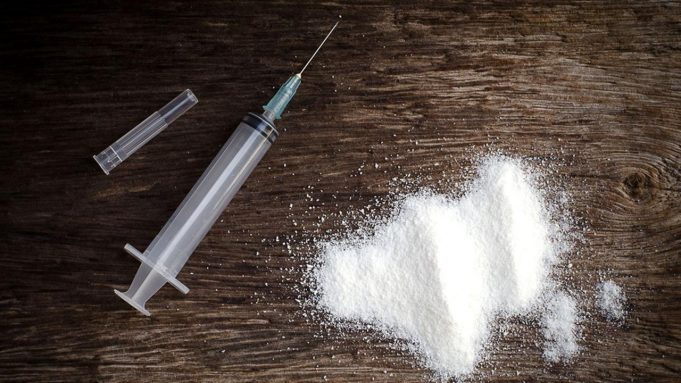The Madison Police Department reported that June is projected to be the worst month for heroin deaths in Madison history.
“Madison really is at the epidemic stage now,” Officer Bernie Albright said. “People from all walks of our community are becoming addicted.”

There were 35 known overdoses in June 2018, compared to nine in June 2017, according to Chief Mike Koval. From those overdoses, there were 11 suspected heroin deaths in 2018. There were two in June 2017.
Albright said that, oftentimes, people will be prescribed painkillers after surgery or to help with pain from an injury.
“Their prescription runs out. They don’t need it anymore, but they have an addiction,” he said. “One thing leads to another, and they’re buying heroin.”
Koval said 10 of the overdoses in June happened inside businesses, and several others happened in parking lots or streets.
Albright heads the Madison Addiction Recovery Institute, or MARI program, which aims to get drug users into treatment facilities and out of the criminal justice system.
He also pointed to an increase in the use of fentanyl, an opioid that is even more addictive and more dangerous than heroin, to explain the increase in heroin deaths.
“Fentanyl is cheaper, so dealers and producers will cut some of their heroin with fentanyl to make it go farther,” Albright said.
Kim Hurd is the MARI coordinator for Connections Counseling, the assessment and referral hub for the program. Her caseload is currently 15 MARI participants. She, too, points to a rise in fentanyl and a derivative called carfentanil as a reason for the increase in the number of deaths.
“They don’t realize what happened. They don’t understand why they overdosed because they had taken such a minute amount,” Hurd said.
She suspects that, in those cases, the heroin was laced with fentanyl.
Since the MARI program started in the beginning of September 2017, 11 people have completed the six-week treatment program. About 100 people have been referred to the program, Albright said.
Three of the 35 people who overdosed in June were deemed eligible and referred to MARI, according to Koval. All three have called Connections Counseling to set up an assessment.




























